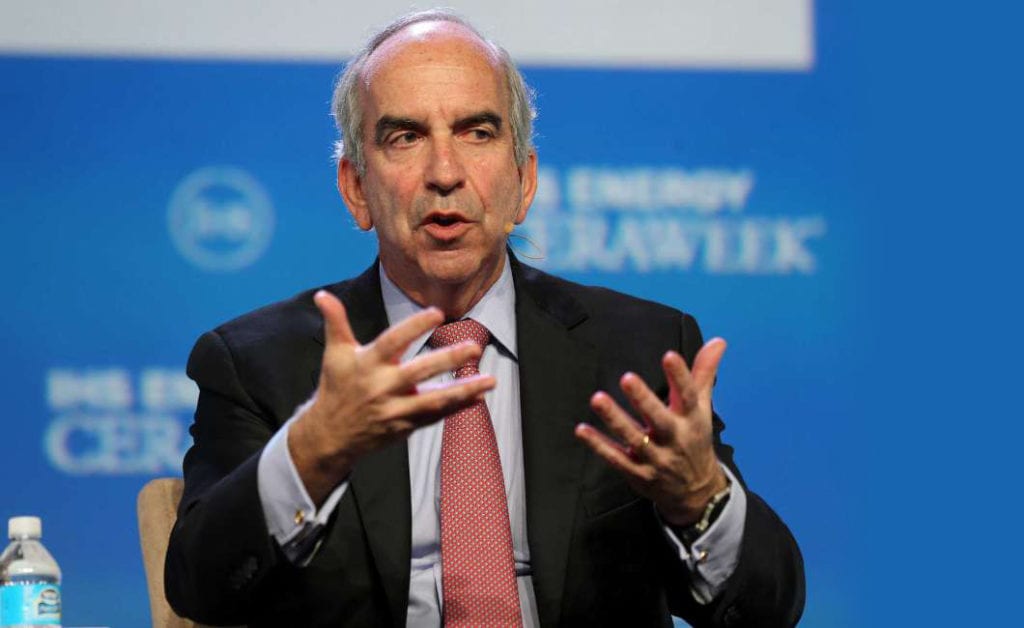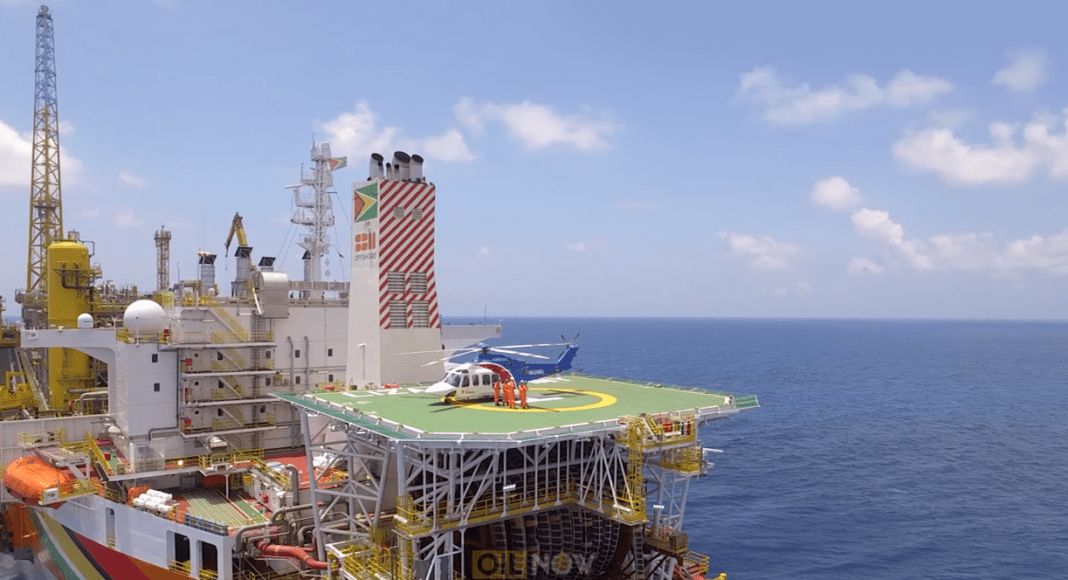With multiple phases of developments coming online in Guyana’s Stabroek Block and a robust inventory of high-return drilling locations in the US Bakken, Hess Corporation says it is projected to rake in almost US$8 billion in annual earnings by 2027. This is according to the company’s Chief Executive Officer (CEO), John Hess.
During his virtual presentation at Barclays CEO Energy-Power Conference on September 7, Hess provided industry stakeholders with an update on his company’s glowing financial future. The Hess Chief said his company can deliver production growth of more than 10% annually through 2027, a feat many of its competitors cannot match.
“We currently have a line of sight to six FPSOs in 2027 (in Guyana) with a gross production capacity of more than 1.2 million barrels of oil per day and potential for up to 10 FPSOs to develop the discovered resources in the Stabroek Block totalling 11 barrels of oil equivalent (boe),” the CEO stated, adding “With the Bakken on track to grow net production to 200,000 boe per day in 2025, Hess’ ability to deliver high-value resource growth in 2025 is unparalleled.”

As a result of the accelerated pace of developments in Guyana, Hess told attendees that the company was able to increase net wide production forecast to 385,000-390,000 barrels of oil equivalent per day (boepd) versus a previous guidance of 360,000-375,000 boepd.
Hess said this primarily reflects strong performance across the company’s portfolio and the expected early start-up of the Payara development in Guyana. Payara, he said, is expected to achieve first oil in the early part of the fourth quarter. It is expected to produce 220,000 barrels of oil per day and complement existing operations at the Liza-1 and Liza-2 projects.
In terms of a low cost of supply, Hess told the energy conference that his company will steadily move down the cost curve. “Our five sanctioned developments offshore Guyana have very low breakeven prices of US$25 to US$35 per barrel Brent. In addition, by 2027 we forecast that our cash unit cost will decline by 25% to approximately US$10 per boe. And in terms of cash flow growth, we have an industry-leading rate of change story and an industry-leading duration story, providing a highly differentiated value proposition,” the CEO said.
Between 2022 and 2027, the CEO said cash flow is forecast to increase by approximately 25% annually, more than twice as fast as its production growth. By 2027, he said the company is also forecast to generate cash flow of nearly US$8 billion per year.
In summary, Hess said his company is uniquely positioned to deliver increased cash to shareholders through regular dividend increases and share repurchases.



